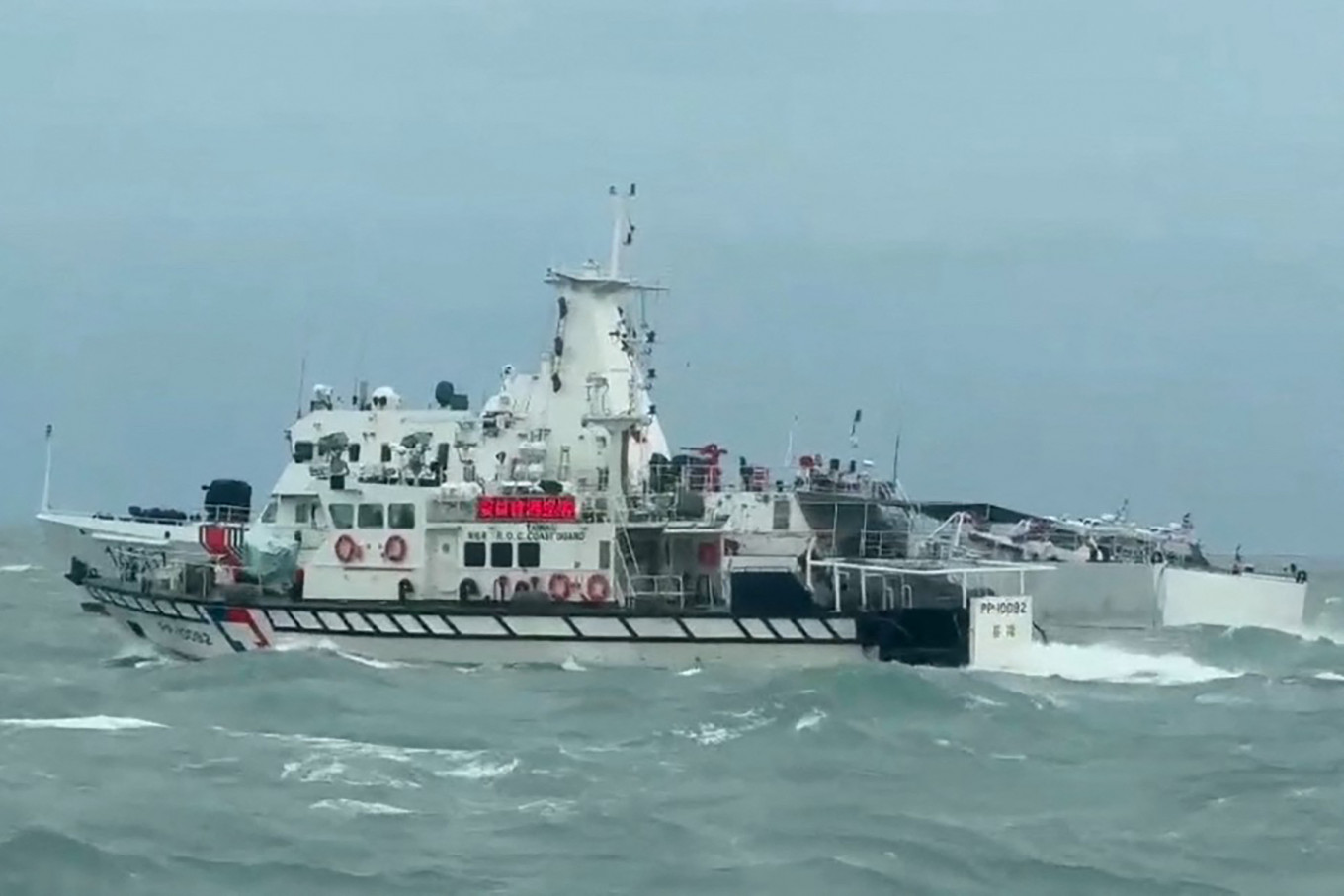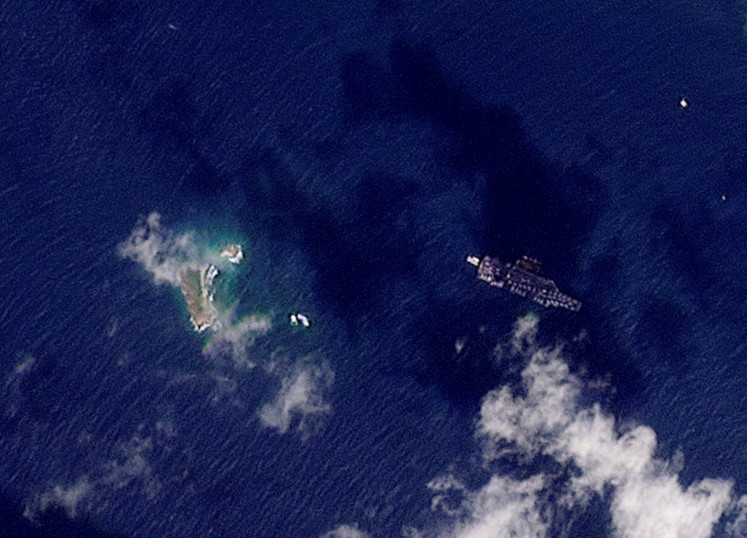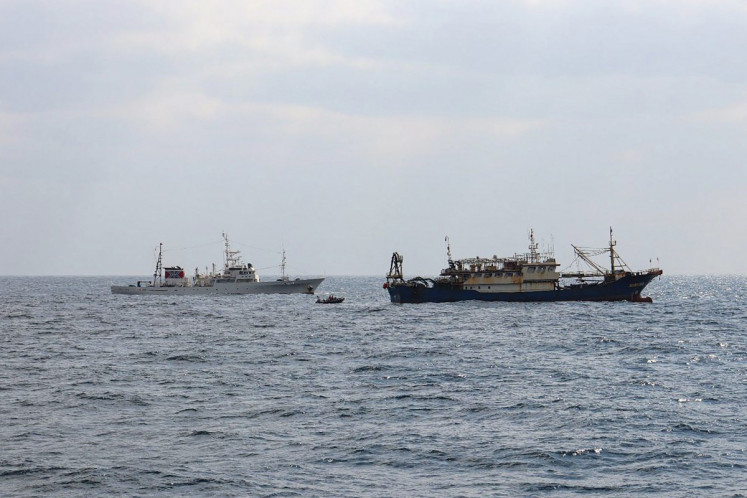Popular Reads
Top Results
Can't find what you're looking for?
View all search resultsPopular Reads
Top Results
Can't find what you're looking for?
View all search resultsTaiwan tensions rise amid Japan-China dispute, US arms deal
The 1972 Japan-China Joint communique normalized bilateral relations, with Japan acknowledging the "One China" policy recognized by many other countries including the United States.
Change text size
Gift Premium Articles
to Anyone
B
eijing has intensified its warnings over Taiwan, summoning Japan’s ambassador in protest over remarks by Tokyo’s new prime minister, while the United States approved a potential of US$330 million of arms sale to the self-ruled island in a separate development likely to escalate regional tensions.
Vice Foreign Minister Sun Weidong summoned the Japanese ambassador to China Kenji Kanasugi on Thursday, according to a statement published Friday on Beijing's foreign ministry website.
It said Sun made "serious demarches over Japanese Prime Minister Sanae Takaichi's erroneous remarks regarding China".
"If anyone dares to interfere with China's unification cause in any form, China will surely strike back hard," the statement added.
Last week, Japan's hawkish new Prime Minister Sanae Takaichi told parliament that armed attacks on Taiwan could warrant sending troops to support the island under "collective self-defense".
If an emergency in Taiwan entails "battleships and the use of force, then that could constitute a situation threatening the survival [of Japan], any way you slice it", she said.
Beijing insists Taiwan is part of its territory and has not ruled out the use of force to seize control of the self-governing island.
Japan's Chief Cabinet Secretary Minoru Kihara said on Friday that his government's position on Taiwan remains unchanged and "is consistent with the 1972 Japan-China Joint Communique".
The 1972 communique normalized bilateral relations, with Japan acknowledging the "One China" policy recognized by many other countries including the United States.
"Peace and stability in the Taiwan Strait are important not only for Japan's security but also for the stability of the international community," Kihara told reporters.
"We will continue to strongly urge China to take appropriate action," he added.
Beijing's foreign ministry on Thursday said it would "by no means tolerate" Takaichi's Taiwan comments.
"The Japanese side must correct its wrongdoing at once and retract the unjustified remarks," spokesman Lin Jian told reporters at a press briefing.
In response, Takaichi told parliament Monday she had no intention of retracting her statement and insisted it was consistent with Tokyo's previous stance.
But she said she would refrain from referring to specific scenarios in the future.
In Washington, the Pentagon announced late Thursday that the US approved the sale to Taiwan of fighter jet parts for $330 million, marking the first such transaction since President Donald Trump took office in January.
"The proposed sale will improve the recipient's capability to meet current and future threats by maintaining the operational readiness of the recipient's fleet of F-16, C-130," and other aircraft, the Pentagon said in a statement.
While the United States does not recognize Taiwan's claim to statehood, Washington is Taipei's biggest arms supplier and a key deterrent to China potentially launching an attack on the democratic island.
The United States is bound by law to provide Taiwan with the means to defend itself.
Taiwan's defense ministry said in a statement that it expected the sales to "take effect" within one month.
"The United States continues to help Taiwan maintain sufficient self-defense capabilities, for which the ministry expresses its gratitude," it added.
The provision of the parts will help maintain the air force's fighter readiness and bolster air defenses, strengthen defensive resilience and enhance the island's ability to respond to China's "gray-zone" incursions, the ministry said.
China's military stages regular missions into the waters and skies around Taiwan, which the government in Taipei terms "gray zone" activities designed to pressure the island but which stop short of actual combat.
Trump says Chinese President Xi Jinping has told him he will not invade Taiwan while the Republican leader is in office.










